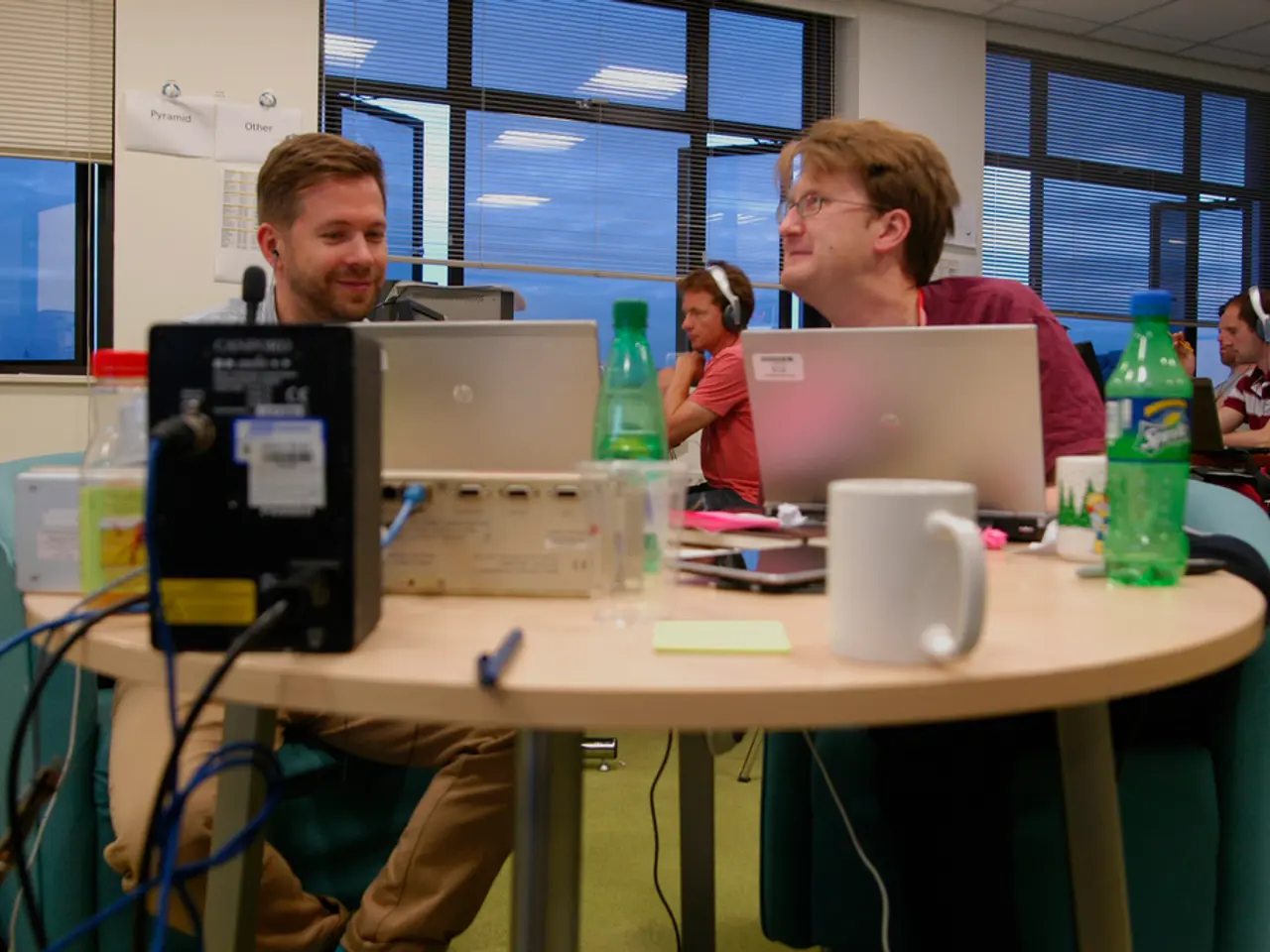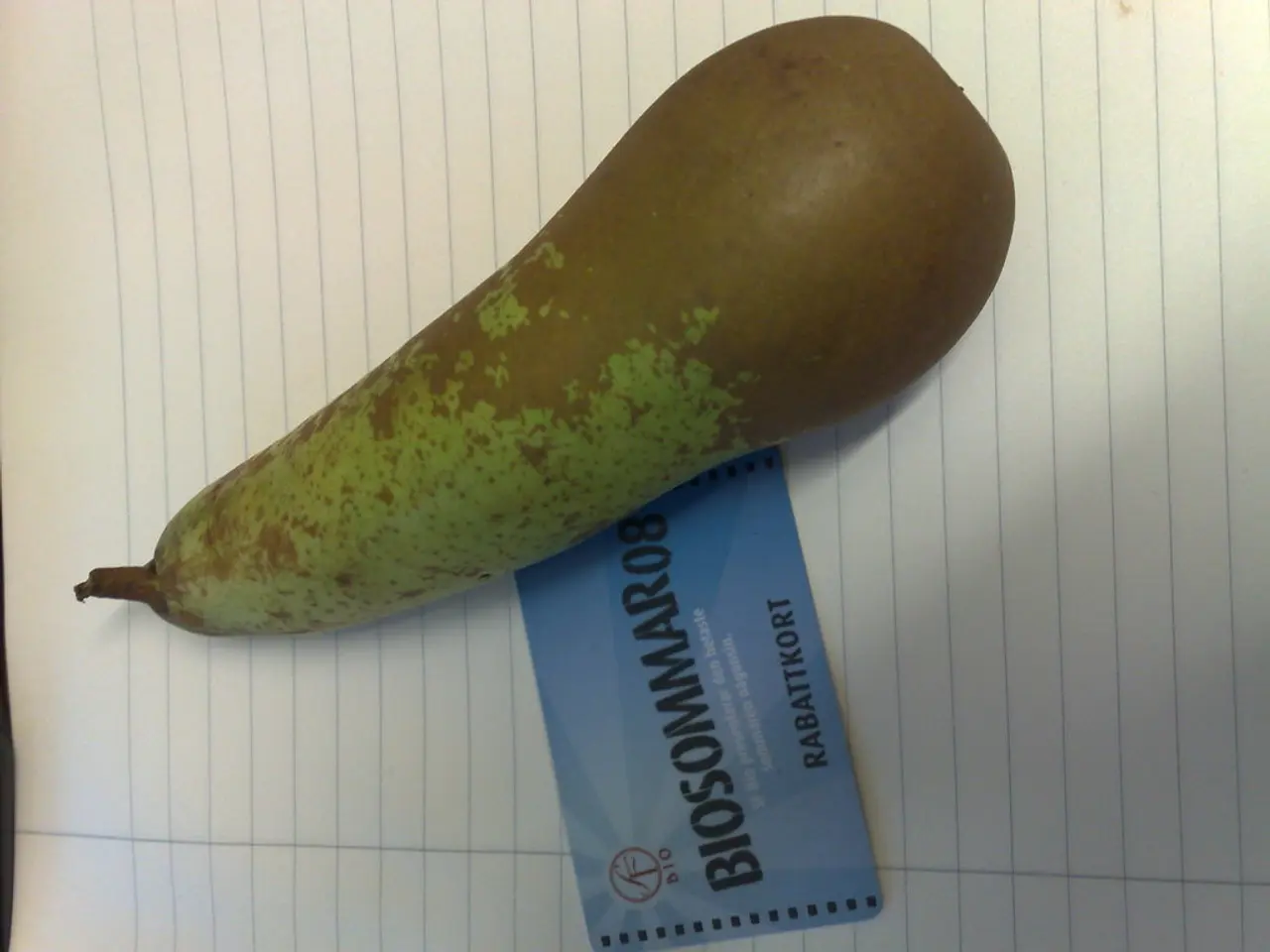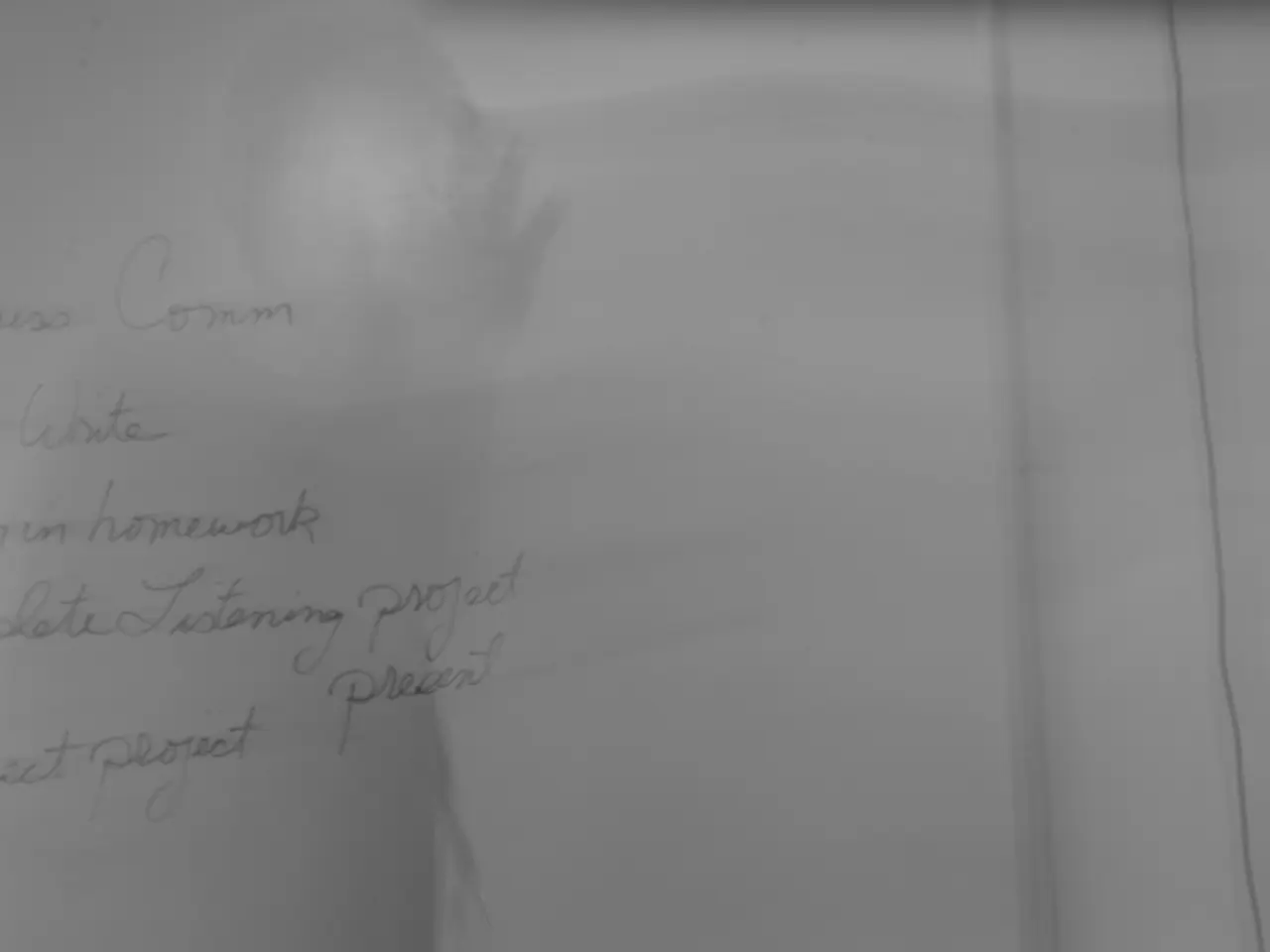Strategies for Eliminating Mental Exhaustion Throughout Your Work Hours
In today's fast-paced workplaces, preserving mental energy is crucial for maintaining productivity and performance. A combination of practical strategies and certain nootropics can help combat cognitive fatigue, a gradual depletion of the brain's ability to stay focused, make decisions, and solve problems effectively.
To begin, engaging in physical activity before the workday starts can boost mental activation and energy levels, enhancing focus and reducing tiredness during work [1]. Moderate caffeine intake, especially scheduled earlier in the day, helps sustain alertness without disrupting nighttime sleep. Avoiding caffeine and sugar late in the day prevents energy crashes and supports better recovery [1].
Taking short, frequent breaks during work shifts is another effective tactic. During these breaks, activities like light physical exercises, social interactions, and exposure to natural light can maximize mental recovery [2]. Consciously disconnecting from work-related thoughts during breaks allows deeper mental rejuvenation and sustains productivity in demanding environments [2].
Implementing ergonomic solutions reduces physical strain that contributes to fatigue. Flexible work hours and remote work options promote better work-life balance, contributing to overall energy management [3][4]. Access to wellness initiatives (yoga, meditation, fitness), nutritional support, Employee Assistance Programs (counseling and stress management), and recognition/reward systems can improve motivation and reduce stress-induced fatigue [3][5].
Collaboration with occupational health experts ensures a tailored, sustainable approach to managing fatigue effectively [1][2][3][4][5]. Conducting fatigue risk assessments and engaging occupational health professionals to provide tailored strategies, including education on sleep, stress management, and nutrition, greatly reduces workplace fatigue risks [5].
While evidence varies, some nootropics and supplements are commonly used to support cognitive function and reduce fatigue in high-demand jobs. Caffeine, widely used for improving alertness and focus, is best when used strategically to avoid tolerance and crashes [1]. L-Theanine, often combined with caffeine, promotes calm focus and reduces jitteriness, improving cognitive endurance.
Rhodiola Rosea, an adaptogen, may reduce mental fatigue and improve resilience to stress. Bacopa Monnieri, known for enhancing memory and cognitive function over time, helps sustain mental performance under pressure. Omega-3 fatty acids support brain health and cognitive function.
N-Acetyl L-Tyrosine replenishes dopamine and norepinephrine under cognitive load, helping maintain motivation and mental resilience during long or demanding tasks. Limiting multitasking and interruptions can help preserve focus and reduce mental strain.
Eating meals with slow-digesting carbs, healthy fats, and protein can stabilize energy levels and prevent mid-day crashes. L-Theanine promotes calm, steady focus by increasing alpha brain wave activity and reducing overstimulation, perfect for staying sharp without feeling wired.
Mild dehydration reduces focus and reaction time. Drinking water consistently throughout the day is essential. Working in focused sprints, such as using the Pomodoro Technique, helps prevent burnout from prolonged, unbroken effort.
Cognizin®, a brand of Citicoline, increases brain energy and supports acetylcholine production, enhancing focus, clarity, and sustained attention throughout the workday. Minimizing decisions can help conserve energy for deep work and creative thinking by creating routines, batching similar tasks, and using checklists or planning tools.
In conclusion, a combination of behavioral strategies like exercise, regular breaks with psychological detachment, ergonomic practices, and workplace wellness programs form a strong foundation against cognitive fatigue. Supplementing with evidence-backed nootropics such as caffeine (with L-theanine), adaptogens, and nutritional support can further enhance mental stamina in high-pressure settings.
- Engaging in physical activity before starting work helps boost mental activation, energy levels, and enhances focus, reducing tiredness during work.
- Moderate caffeine intake, especially earlier in the day, helps sustain alertness without causing sleep disruptions and energy crashes in the late afternoon.
- Short, frequent breaks during work shifts, involving activities like light physical exercises, social interactions, and exposure to natural light, maximize mental recovery.
- Consciously disconnecting from work-related thoughts during breaks allows for deeper mental rejuvenation and sustains productivity in demanding environments.
- Flexible work hours and remote work options promote better work-life balance, contributing to overall energy management and reducing stress-induced fatigue.
- Access to wellness initiatives, nutritional support, Employee Assistance Programs, and recognition/reward systems can improve motivation and reduce stress-induced fatigue.
- Collaboration with occupational health experts ensures a tailored, sustainable approach to managing fatigue effectively, including education on sleep, stress management, and nutrition.
- Some nootropics and supplements, such as caffeine, L-Theanine, Rhodiola Rosea, Bacopa Monnieri, Omega-3 fatty acids, N-Acetyl L-Tyrosine, and Cognizin®, are used to support cognitive function and reduce fatigue in high-demand jobs.
- Limiting multitasking, decisions, and interruptions can help preserve focus and reduce mental strain, while eating meals with slow-digesting carbs, healthy fats, and protein can stabilize energy levels and prevent mid-day crashes.
- Mild dehydration reduces focus and reaction time, making drinking water consistently throughout the day essential, and working in focused sprints helps prevent burnout from prolonged, unbroken effort.




